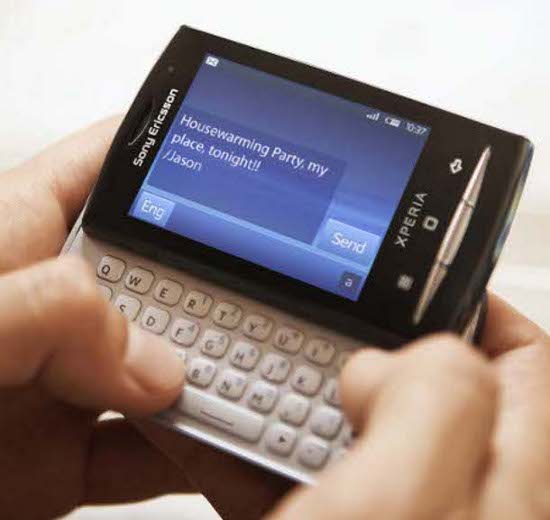Sony Ericsson cranks up Android range with new Xperia handsets

MWC 2010: X10 mini and X10 mini pro unwrapped in Barcelona
Sony Ericsson has launched a new range of smartphones based on the Android platform.
On the eve of the Mobile World Congress trade show in Barcelona, the mobile maker yesterday showed off two variations on its previously announced Xperia X10 Android touchscreen handset: the Xperia X10 mini, which comes with a touchscreen, and the X10 mini pro, which sports both touchscreen and slide out keyboard.
Both phones are due to ship in the second quarter of this year.
While the Xperia X10 comes with a four-inch screen, its diminutive cousins have a mere 2.55-inches to play with.
Sony Ericsson said the Mini is smaller than a credit card - and that the Sony Ericsson UI has been adjusted to be used with just a thumb. The Android Market and Sony's PlayNow music download service are both available via the Mini.

The Sony Ericsson Xperia X10 mini pro
(Photo credit: Sony Ericsson)
The mobile maker also showed off a new, non-Android handset - the Vivaz Pro. The device, a slider variation on the previously announced Vivaz, runs the S60 platform and will ship in the second quarter of this year.
The Vivaz Pro is 2mm thicker than the Vivaz but has a slide out Qwerty keyboard, unlike its touchscreen predecessor.
Sony Ericsson said the need to type on smartphones is no longer just the sole preserve of business users and is also increasingly important for consumers updating Facebook or Twitter.
Sir Howard Stringer, chairman, CEO and president of Sony Corporation, also reiterated Sony's commitment to the Sony Ericsson joint venture yesterday.
"We firmly support Bert [Nordberg, Sony Ericsson president] and his leadership team at Sony Ericsson," he told a press conference in Barcelona. "We know that all of us Sony, our partner Ericsson and Sony Ericsson working together will continue to drive innovation and achieve success." Rumours the joint venture would split circulated last summer.
Stringer went on to predict that increasing functionality of mobile devices will spell the end of many everyday objects.
"The mobile phone long ago replaced the wrist watch for many of us and it's likely wallets and keys will be next, as the use of mobile payments and our ability to digitally access cars, homes, offices, public events and more using phones increases. The day is not far off when fundamental objects like drivers licences... airline tickets and credit cards will be relics of an ancient world - and all of this will offer new and important revenue streams," he said.